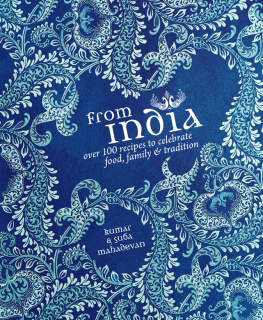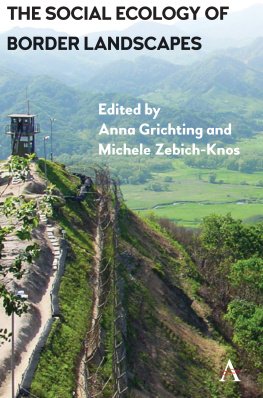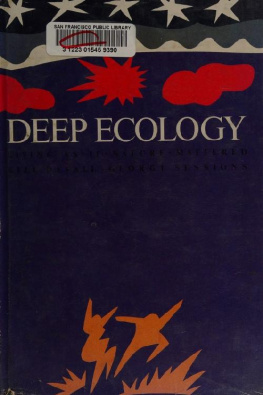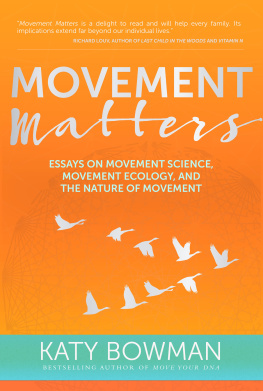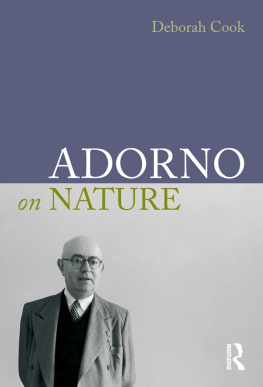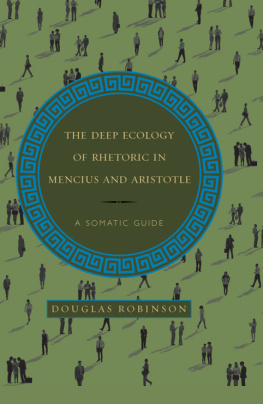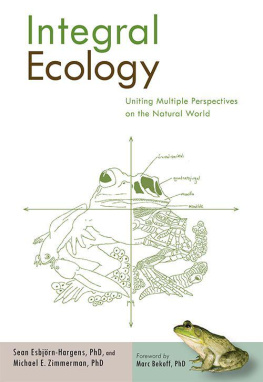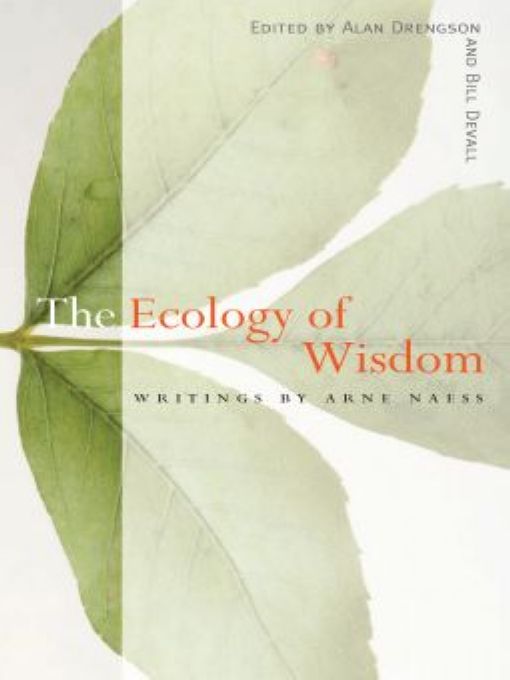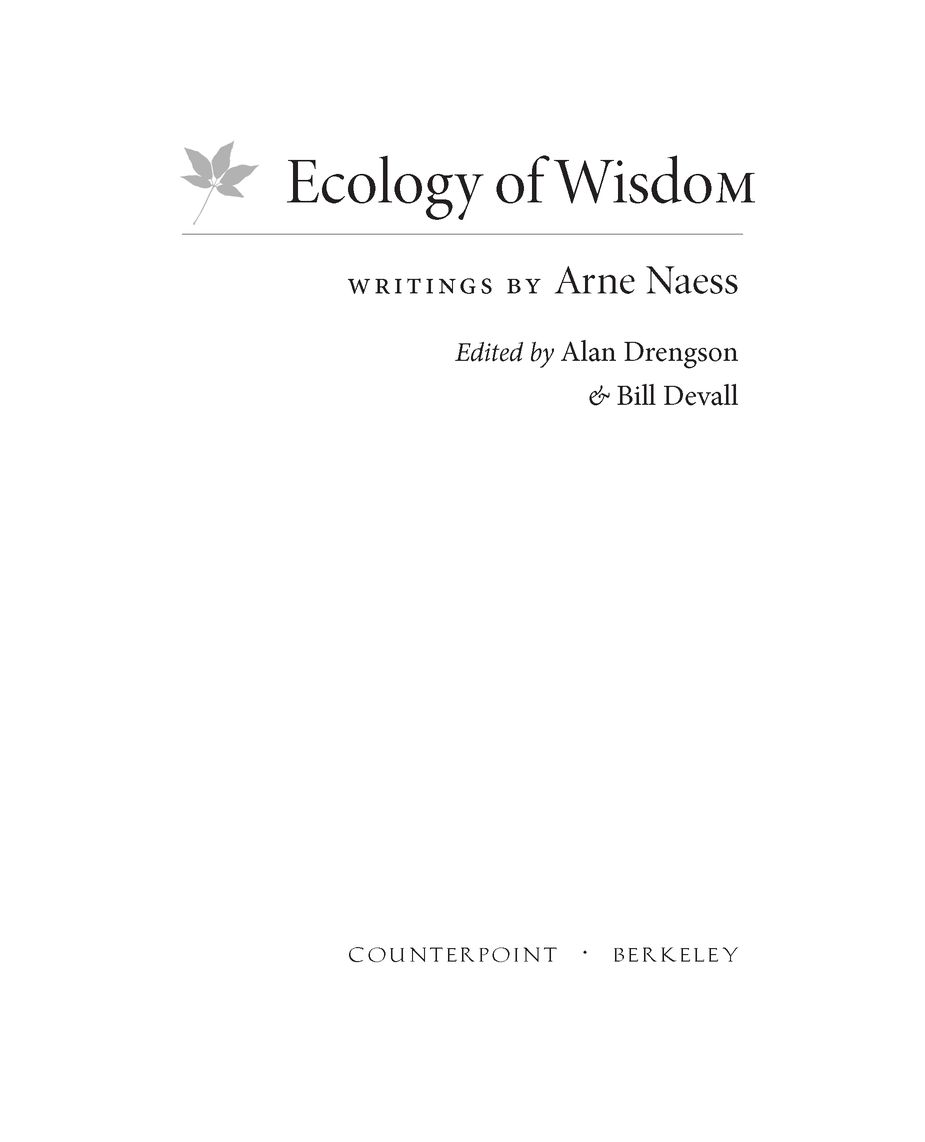Table of Contents
Preface
Arne Naess is a mountaineer, a Gandhian boxer, a professor, an activist, and a student of lifes philosophy. You may never have heard of Arne Naess, or you may be his devoted student. You may never have heard the phrase long-range deep ecology movement, but you might be a supporter of the movement and are awakening to your intuition of deep ecology.
Wherever you are coming from, as a reader, you will discover mountains of inspiration in the Ecology of Wisdom.
Arne Naess does not see himself as an academic philosopher. He considers himself a teacher who attempts to inspire his students to articulate their own ecosophy. Ecosophy is derived from the word ecology, the study of interrelationships, and sophia, wisdom. Literally, this collection of some of Arnes essays is intended to inspire diverse ecosophies among readers with the intent of actualizing self-realization and cross-cultural understanding.
The essays included in this book engage readers in some of the most important aspects of Arnes approach to lifes philosophy. These aspects are especially relevant during the early decades of the twenty-first century, an era of globalization of economy and accelerating cultural transformation.
The reader can begin reading this anthology at any essay or any section in the book. The essays are not presented in chronological order but in thematic gestalts. The editors have grouped essays in sections that seem appropriate to explore various aspects of Arnes whole approach to lifes philosophy. Readers who want more in-depth access to Arnes lifework are referred to the ten-volume series, The Selected Works of Arne Naess (SWAN).
This anthology begins with an exploration of Arnes life and work by Alan Drengson. This essay explores how Arne developed and articulated his own life philosophy grounded in a place. Arnes life is used as one possible model, among many, that readers can use to develop their own ecosophies. Pluralism and diversity are key words to understanding Naesss approach to living in an ecologically responsible way in harmony with nature.
The essays in Section 1, Places in the Real World, convey Arnes views on the importance of place in grounding the expression of our ecosophies. Arnes special place was Tvergastein. In this place in the mountains of Norway, he explored his own lifes philosophy. At Tvergastein, he learned lessons of modesty, the real interrelationships of humans in nature, and articulated self-realization as a general principle for lifes philosophy. But this leads us to ask, What is this self to be realized? When we explore the nature of the self, we find that what we are is interdependent with our relationships and places. To know ourselves deeply is something only each of us can achieve through our own personal inquiry. Since we and everything we know are always changing, our inquiries become part of daily life. We never stop learning and creatively adapting to our changing life circumstances. Thus we become lifelong learners.
Section 2, The Long-Range Deep Ecology Movement, includes some of Arnes thoughts on the relationships of the three great movementspeace, social justice, and ecological sustainability. These essays emphasize the importance of diversity, cooperation, and beautiful actions, with the high quality of a joyful life based on nonviolence and low consumption.
Section 3, Methodology and Systems, focuses on Arnes approach to total views, methodology, pluralism, intensity, and creativity in articulating our own ecosophies in the cultural contexts within which we dwell. This section explores Naesss gestalt ontology and the role of creativity in the way we act and live from moment to moment.
Section 4, Nonviolence and Gandhi, Spinoza and Wholeness, includes essays on Gandhis approach to group conflict. From the 1930s onward, Arne has been a student of Gandhis methods, and the essays in this section reflect the enduring relevance of nonviolent direct action as a way to cultural transformation. The American leader of the civil rights movement, the Reverend Martin Luther King, Jr., visited India during the 1950s to study Gandhis methods before he began his civil rights campaign in America. King returned to the United States convinced that he could transform American society using Gandhis methods. In the essays in this section, Arne demonstrates why Gandhis methods are vital to those seeking cultural transformation during the twenty-first century.
The article on Spinoza and wholeness includes essays that explore the continued relevance of Spinozas approach to a total life philosophy. Arne encourages creative reinterpretation of Spinoza to explore the richness and diversity that the study of his writings provides for people seeking to realize their own ecosophies under their present life challenges. Spinozas philosophy exemplifies a unified approach to life as a whole, from our feelings and thoughts to our actions and relationships. He emphasizes equanimity and positive feelings and ever deeper insight into the rich unities of our whole spontaneous experience.
Section 5, Problems and Ways Forward, begins with the supposition that during the early decades of the twenty-first century, cultures and societies are faced with massive problems, environmental, social, and personal. Arne offers suggestions on how to approach these problems, conceptually frame them, communicate about them in appropriate language, and advance positive cultural transformations in our actions. He stresses that our effectiveness depends on our being nonviolent, even in our language. We need to build cooperative relationships at every level of our lives and society to solve the wide range of problems and hazards we now face. Naess believes that each of us is capable of far more than we believe and that we usually greatly underestimate our own abilities.
As you read these essays, enjoy yourself and be in peace.
Alan Drengson and Bill Devall
Acknowledgments
Professor Naess is grateful to the Research School of Social Sciences, the Australian National University, for giving him the opportunity to be a Visiting Fellow and to discuss and rewrite (in September 1984) what he has thought about the relationship of our Lebenswelt to objective reality, discussed in the essay The World of Concrete Contents in this book.
Alan Drengson and Bill Devall are grateful for the support and help of Arne and Kit-Fai Naess, the Foundation for Deep Ecology, and the people at Counterpoint Press for making this book possible.
Introduction
The Life and Work of Arne Naess: An Appreciative Overview by Alan Drengson
Part 1 of this introduction concentrates on Arne Naesss life and accomplishments. It describes his spirit of free inquiry, love of nature, and commitment to nonviolence, as these matured from his Norwegian origins. Part 2 looks in depth at his comprehensive approach to the international deep ecology movement, worldviews, and philosophies of life, especially if the latter are ecosophies. (Ecosophy is Naesss term for personal life philosophies aiming for ecological harmony.) This article describes Naesss approach to total views and how this engagement opens abundant depth, diversity, and unity to wisdom, which improves life quality. Global views should include and respect linguistic and cultural diversity and the plurality of religions and treasure the vast number of personal philosophies on earth. Naess feels that major interdisciplinary efforts are needed to study the ecology and evolution of human and other communication systems of cultures in their home places.






